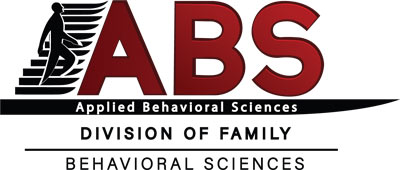
Counseling for Families: Healing Together?
Discover the journey of family counseling and how it can foster healing and stronger bonds within families.
The family unit, a tapestry of diverse personalities and relationships, can sometimes face challenges that strain its very fabric. Family counseling presents a path to mend these strains, offering a space for healing, understanding, and growth. In this blog, we explore the transformative power of family counseling in addressing conflicts, improving communication, and strengthening family bonds. It’s a journey of collective introspection and empathy, where each member learns to navigate the intricate dynamics of family life. We delve into the heart of family counseling, examining how it can resolve deep-rooted issues and foster a nurturing environment. Through expert insights and real-life examples, we shed light on the impact of collaborative therapy in building healthier, more resilient family relationships. This article is a guide for families seeking to turn challenges into opportunities for unity and growth.
The Role of Family Counseling in Addressing Shared Challenges
Family counseling emerges as a powerful tool when families face challenges that affect the entire unit. It’s a therapeutic approach that helps family members improve communication, solve family problems, understand and handle special family situations, and create a better-functioning home environment. Unlike individual therapy, family counseling focuses on the relationships and dynamics within the family. The counselor, a neutral third party, helps members understand each other’s experiences and perceptions and guides them toward establishing new ways of interacting that promote harmony and understanding. This process is not only about resolving conflicts; it’s about strengthening the bonds within the family and fostering a sense of unity and support.
Navigating Through Communication Barriers and Conflicts
One of the primary objectives of family counseling is to break down communication barriers. Misunderstandings and conflicts often arise from poor communication, leading to a cycle of arguments, resentment, and emotional distance. In counseling sessions, families learn effective communication skills such as active listening, expressing feelings constructively, and understanding nonverbal cues. By creating a safe space where each member feels heard and valued, the counselor facilitates a deeper understanding among family members. This process helps resolve conflicts and builds a foundation for more positive and supportive interactions.
Addressing Specific Family Issues with Customized Strategies
Every family is unique, and so are the issues they face. Family counseling covers a broad range of situations, including marital problems, parent-child conflicts, the effects of substance abuse or mental illness on the family, and major life transitions like divorce or the death of a loved one. The counselor assesses the specific needs and dynamics of the family to provide customized strategies. This might include developing new coping mechanisms, altering family roles, or introducing routines that help manage daily stresses. In cases where mental illness or substance abuse is involved, family counseling becomes part of a broader treatment plan, providing support and education to all family members.
The Journey of Healing and Growth Together
Family counseling is not just about resolving existing issues; it’s about setting the stage for the long-term health and resilience of the family unit. Through the counseling process, families often discover strengths and resources they didn’t realize they had. They learn to work together to overcome challenges, support each other in times of need, and celebrate achievements together. This journey of healing and growth can bring family members closer, creating a stronger, more cohesive unit. It’s a transformational experience that can have a lasting impact on each member’s life, both individually and as part of the family.
Empowering Families for Future Challenges
An essential aspect of family counseling is empowering families to handle future challenges independently. The counselor equips the family with tools and strategies that they can use beyond the therapy sessions. This empowerment helps families become more resilient, enabling them to navigate the complexities of life with greater confidence and mutual support. The skills learned in family counseling – effective communication, conflict resolution, empathy, and teamwork – are invaluable assets that family members carry with them, enhancing their relationships and overall quality of life.
Family counseling at Applied Behavioral Sciences offers a path for families to heal together, strengthening their relationships and building a foundation for a healthier future. Applied Behavioral Sciences addresses each family’s unique challenges and dynamics, providing customized strategies and support. By improving communication, resolving conflicts, and fostering growth and resilience, family counseling can transform the family experience, creating a more harmonious and supportive home environment. It’s a journey of collective healing that enriches the lives of all family members, paving the way for lasting positive change.
